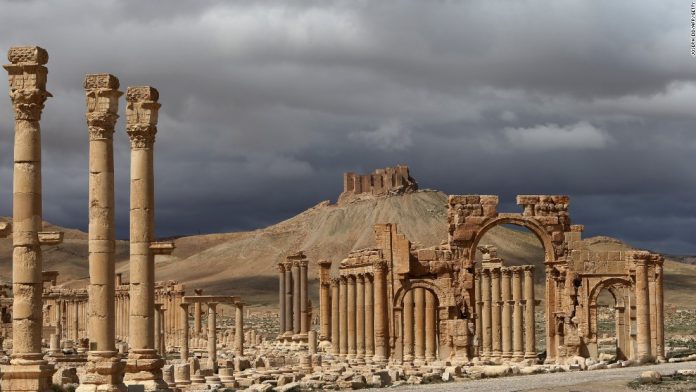
Authored by Jeffrey Harding via The Mises Institute,
(Zero Hedge) There are lots of ways to kill off a civilization. Wars, politics, economic collapse. But what are the actual mechanics? It might be a useful thing to know whether or not we are killing ourselves off.
Ancient Rome is a good place to start. They had an advanced civilization. They had running water, sewers, flush toilets, concrete, roads, bridges, dams, an international highway system, mechanical reapers, water-powered mills, public baths, soap, banking, commerce, free trade, a legal code, a court system, science, literature, and a republican system of government. And a strong army to enforce stability and peace (Pax Romana). It wasn’t perfect, but they were on their way to modernity.
One of my favorite quotes is from Marcus Tullius Cicero, statesman, orator and writer (106-43 BCE):
Times are bad. Children no longer obey their parents, and everyone is writing a book.
If that isn’t a mark of a civilized society I don’t know what is.
But Rome collapsed. I often wonder what would have happened if it hadn’t. Could we have avoided a thousand years of the Dark Ages. Could we have been flying airplanes and driving cars in the year 1000?
What the hell happened to Rome?
Dictators. After 500 years, the famous Roman Republic ended with the dictator Julius Caesar taking power. Four hundred years later his progeny and usurpers ran the Empire into the ground and Rome fell to invading barbarians.
The standard explanation for Rome’s decline and fall is that they devolved into dictatorships (true, but not the cause of their fall). Or they became decadent and corrupt (true, but not the cause of their fall). They fell to barbarian invasions (true, but not the cause of their fall).
Rome fell because the dictators ruined the Roman economy and the institutions that had made it prosperous. Rome was falling apart before the barbarian invasions.
How did the Caesars do that? They were profligate spenders. As emperors with absolute power usually do, they thought big: infrastructure (roads, temples, palaces), a huge bureaucracy, and, as the key to maintaining their power they had a very large, loyal, and well paid army. As a consequence, massive government spending far outstripped revenue. They had what today we call a deficit problem.
They did two disastrous things to solve their deficit.
First, they kept raising taxes which became punitive. Not caring much about the consequences to the merchants, small farmers, and peasants, they came up with new ways to squeeze money out of their citizens. Onerous taxes led to tax evasion. The government’s response was to double down and implement laws that restricted economic freedoms in order to raise even more taxes. Heavy taxes forced property owners, small and large, off the land. Large feudal estates run by political cronies arose in their place. Laws were enacted that forced peasants into virtual serfdom. Business owners and their children were prevented from changing jobs or towns. And, taxes had to be paid either in gold or in kind or they would lose everything. Gold became scarce. Gold money was only lawfully available to the government, army, and bureaucrats.
Second, they debased the currency which led to inflation. It was the equivalent of printing money to pay for things. The resulting bouts of high inflation destroyed much of commerce and agriculture. Like most dictators they thought they could stop rising prices by implementing price controls, but that just led to gold and goods disappearing from the economy. Black markets grew despite threats of capital punishment. Unemployment and homelessness rose. Their large welfare system kept running short of money. Commercial, legal, and moral institutions were falling apart. Corruption was endemic. The resulting booms and busts and depressions were destroying the economy.
By the time the Goth and Visigoth invaders came along, Rome was so weakened that they could not hold back the waves of invasions. At the end, Roman citizens saw the government as the enemy and the invading barbarians as their saviors. Rome fell in 410 CE. What emerged was what we now know as the Middle Ages — it lasted for a thousand years. You know what that was like. They didn’t call it the Dark Ages for nothing.
Much of Rome’s economic history is quite familiar in modern times. Even after thousands of years of evidence of repeated failure, bad ideas simply don’t die. Proponents of bad ideas are either ignorant of history or just ignorant. Or they are politicians (as Mark Twin said, “But I repeat myself.”).
One bad idea with ancient precedents is Modern Monetary Theory (MMT). MMT is the New Thing among Progressives in America. Politicians like Alexandria Ocasio-Cortez (AOC) and Bernie are quite excited about MMT. They think they have discovered the Holy Grail of economics.
Progressives believe that government can and should cause economic growth and prosperity. They believe government can do this by various controls, regulations, spending programs, and monetary manipulation. They believe proper government spending will stimulate demand, generate consumer spending, kick-start production, and, voila! we have full employment and prosperity. Along the way we can solve various social problems.
The idea of MMT takes this one step further. They believe that the government can spend/buy whatever it wants and print pieces of greenish paper to pay for it. Government doesn’t need to tax us or borrow money to do this — it can print whatever money it needs to pay for it. Deficits don’t matter because by printing money to pay for stuff they instantly solve the deficit problem. MMTers claim, with no shortage of arrogance, that they, Oz-like, can fine-tune the mechanics of how the economy is to be run and generate prosperity, prevent inflation, end inequality, and save the planet.
In other words, everything will be perfect; “just trust us” to run things. It sounds too good to be true.
AOC and Bernie Sanders and their supporters heartily embrace MMT. They want to break free of old-fashioned concepts such as fiscal integrity, balanced budgets, and monetary stability because they want no limits on their utopian schemes.
MMT is a crackpot idea. It is the monetary equivalent of the Perpetual Motion Machine — it ignores the laws of economics. It’s like asking third graders to invent money. (“I’m gonna print me a bunch of money and buy me a Ferrari an’ a jet an’ all the coolest video games an’ …”). Proponents confuse pieces of greenish paper with wealth and, as history has repeatedly proven, you can’t print your way to wealth and prosperity.
There is nothing “modern” about Modern Monetary Theory. It has been tried many times over the centuries and it has never worked. In every case where governments have printed money to pay for things, the result has been cycles of boom and bust, inflation (and hyperinflation), economic stagnation, and social disorder. MMTers simply don’t understand what money is or the mechanics of the business cycle or the concept ofmalinvestment and the destruction of capital.
Why is it not possible that we could go the way of Rome? Franklin D. Roosevelt’s New Deal resulted in 25 years of economic stagnation. Only post-FDR deregulation, more economic freedoms, capital investment, and fiscal and monetary sanity led to economic growth.
AOC’s Green New Deal plus MMT would be worse than the old New Deal in that it places no limit on government’s ability to spend which means government can command economic resources and control the direction of the economy. History has shown that governments aren’t very good at that. Absolute power in the hands of the few is a bad idea.
How much destruction could MMT and utopian Progressive schemes like AOC’s utopian Green New Deal inflict on our civilization? It is hard to tell, but I hope we don’t have to look back some day and say the end started now.





In reply to How to Destroy a Civilization. The article is rather sound until it reaches the FDR comments. The problem that follows does NOT take into account two events which have decimated the middle class in the US. First, changing health care from non-profit to profit in the 1970s. This has enabled the pharmaceutical and medical entities to raise prices to the point that many hard working economically stable individuals have lost everything due to immense medical bills. (Insulin costing $6. to produce and being sold for $400. etc.) Second, destroying unions in the 1980s so that workers’ wages have not kept pace with the economy for the past decades since the 1980s. These two actions, coupled with the massive investment in military equipment and actions around the world have caused the US general population to be attempting to survive in a precarious economic situation, leading to the malaise and fear in many people. It makes no sense to spend over 50 percent of our tax dollars on military action and equipment.
I’ll try to say at least one thing kind, something, anything about this incredibly biased and woefully misinformed piece, so here goes— the Roman comparison is apt, and there are striking parallels between the examples you gave and the state of the American Republic today. For instance, massive spending on unnecessary and costly infrastructure projects that served little practical purpose; the Caesars built extravagant statues, whereas the leader of the largest empire of today hopes to build an equally outrageous, pointless monument— a wall.
Additionally, the article seems to confuse MMT with… well actually I’m not sure how you became so confused, considering how consistently the vilified Sanders and Cortez have consistently proposed entirely other solutions to fiscal issues such as failing education systems and economic inequality, solutions such as more progressive tax laws; additionally, I’d be remiss to not mention what a fantastic job your did you did of making an exception strong case for these progressive tax structures, by way of your discussion with the section dedicated to the ruling class’s crippling taxation of the lower classes, which, as you so deftly pointed out, caused an even more dire cascade of economic crises.
Finally, the assertion upon which your argument hinges, that somehow progressive redistribution policies are equivalent to a fictional, proposed economic policy of merely printing out money without concern for inflation (MMT). Asserting the congresspeople Sanders and Cortez advocate such a system is patently false and an argument made in bad faith. You also conveniently glossed over the cost of levying and maintaining numerous Roman Legions and the contributions that the action made to the Roman deficit. I’m sure you know where I’m going with this, but, just in case, you should review the percentage of the American GDP that goes to “defense,” solely. A small percentage of that total could pay for a Super Wall, with enough left over to cover the sort of healthcare system long maintained by every other developed nation in the world and/or tuition for public higher education, which— in the case of the latter point— was the case during the years following F.D.R.’s New Deal, with record-setting education and average wage numbers (by the way, I have to hand it to you for attacking an economic recovery package that, historically, even most conservative politicians have referenced with reverence).
In short, your analogy is sound. It merely entirely misrepresents, misunderstands, or misinterprets the dangers currently facing our Republic, their causes, and their solutions. It’s honestly impressive how phenomenally a set of bias-based rationalizations and— frankly, mental gymnastics— led to the assertions of this piece. It was sincerely fascinating to see, like someone trying to exercise cognitive dissonance through satire but with the certainty that one is not, in fact, witnessing Poe’s Law in action..